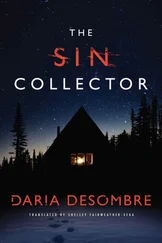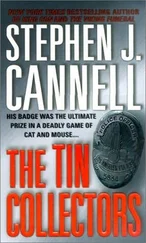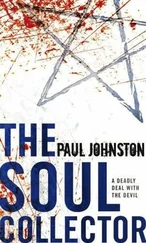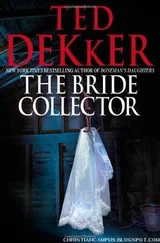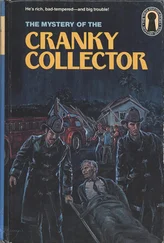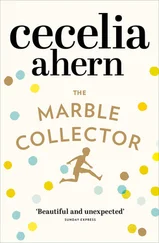“Are you all right?” George asked. That startled her, and he regretted the question. Too intimate. Too concerned. “Could I get you some strawberries?” he amended.
She shook her head and kept gazing at the rare cookbooks under glass.
“Please let me get you some.”
“Please?” She teased gently. “Have you started saying please to me?”
“A rare slip,” he said. “But I did buy the strawberries for you.”
“Why?”
Because I love you, he thought. “Because I owe you,” he said.
“You don’t owe me anything,” she replied in her easy way.
“You know I do. You got me these books.” His voice was low. “You made the deal, Jess.”
“True,” she conceded with a smile.
“Would you like to work on them?”
“Work on them how?”
“We need a descriptive catalog, for one thing. We have to sort the notes and store them separately with records of the page numbers where they were found. Colm started, but I need him at the store, and he’s got his dissertation. I was wondering if you would like to try.”
He opened the glass display case and took out the palm-sized 1814 American Cookery . The binding had cracked, and he held the book as if it were a fledgling with a broken wing.
“Independence Cake,” Jess read over George’s shoulder. “Twenty pounds flour, fifteen pounds sugar, ten pounds butter, four dozen eggs, one quart wine, one quart brandy …” She laughed softly. “Was this for the Founding Fathers reunion?” She turned the next several pages and found a black-ink drawing on a slip of typing paper, a nude woman holding a round fruit to her mouth. Jess plucked it out and read the collector’s tiny caption: “Do I dare to eat a peach?”
“Will you?” George asked, closing the book and placing it atop the cabinet.
“Maybe,” Jess said lightly. “Do you have any?”
“No peaches.”
“Oh, well. I can’t ruin this dress, anyway.”
Words he took as permission to look openly at her. The fabric of her dress, gray and wrinkled at first glance, was really silver. No one else would wear fabric like that, rustling with every breath.
“It’s Emily’s,” she said, disproving his idea immediately. She had borrowed the dress from her sister, although Emily thought it was too long on her.
“Will you take the job? Please?”
“Hmm.” Pensive, with just a touch of humor, she said, “I don’t think I like that word from you.”
“I’d pay you more,” George told her. Only half-joking, he declared, “I’d make you curator.”
“Oh, a title,” said Jess.
Why are you hesitating now? he thought. What have you been doing for the past six weeks? He had scarcely seen her at the store. Across the room, George’s friends were clustering at the dessert table like bees. Raj and Colm were discussing William Blake, while Jonathan was holding forth to Nick about how the Nasdaq would rise again. Stealthily, Leon walked among them. George assumed he was casing the joint. George should check Leon’s pockets before he left. Search him and then show Jess the content of her boyfriend’s character. After which George could comfort Jess, and then … he didn’t know what happened next.
Jess said, “I want to know who she was.”
“What do you mean?” George asked.
“The collector’s lover.”
“Why do you assume he had a lover?”
“Well, because—because look.” Jess held up the nude. “You’ve got the evidence right here.”
“You’re missing the point,” George told her. “She wasn’t his lover. That was why he wrote all the notes and drew the pictures.” He took the drawing from her, and his fingers brushed hers. She looked up at him, clear-eyed. Perspicacious . She understands, he thought. She knows.
But in the next moment she drew back her hand. “Actually, I think I would like a drink.”
As he showed her the way to the bar, he finished his thought under his breath, murmuring, “He didn’t have her, so he drew her instead.”
Jonathan was calm when ISIS rose to nine, and still confident when the shares retreated to five fifty. Those who whined and fretted only irritated him. Scared-straight venture capitalists did not impress him now any more than they had back in 1998 when they pleaded with Jonathan to take their cash. Where did they get their ideas about the new economy? From magazines? He did not bother reading publications like Fast Company , or Wired , or Forbes . So-called business cycles bored him. The news, whether paper or electronic, meant little as far as Jonathan was concerned. The news was already old. Weekly, daily, hourly, anything called news was already archival.
He understood that in this world there were news reporters and news makers, investors and innovators. Watchers and world beaters. In each case he took the active role. He did not know economic theory; he knew computers. He did not meditate on trends; he eyed the future. And so, at George’s party, when he talked to Nick, he spoke with perfect equanimity. “The strong survive, man,” he told Nick, and by strong he meant “Those with new technology.”
While Emily saw falling share price as a sad decay, a postlapsarian decline from larger, rounder numbers, Jonathan came to view the fall as opportunity. “Buy now,” he told anyone who asked, and he began to buy back shares himself, convinced of his company’s resilience.
In April when ISIS sank to four, Jonathan called a meeting. Dave, Aldwin, Oskar, and Jake gathered in Oskar’s office.
“Where’s Orion?” Jonathan asked.
“I’m not sure he came in today,” said Jake.
“No, I saw him,” said Aldwin, just as Orion walked through the door and took his seat in the corner.
“Okay,” said Jonathan, and then paused as Orion opened his cream soda. “Let me tell you what’s happening.”
“Cisco bought us,” Orion said, and for a second everybody froze in shock. “Just kidding.”
No one laughed.
“Anyone else want to take a guess?” Jonathan asked icily. Nobody spoke, so he continued. “It’s time for a paradigm shift. We are going to develop a new security product for electronic fingerprinting of every view and touch on a piece of data. We’re going to call this service Fast-Tracking, and we’ll sell it to every security client.”
“How would this work?” Dave asked.
“Look, with ChainLinx we encrypt transactions to safeguard the purchaser. Fast-Tracking is really a data-protection and surveillance tool for the vendor.” He stepped up to the board and began to draw the new scheme in green ink.
What did Eli Whitney feel when he arrived in America with plans for the cotton gin? What were Francis Cabot Lowell’s emotions when, from memory alone, he built a scale model of the Cartwright weaving machine? Elation? Mastery mixed with trepidation? Jonathan felt entirely himself as he played his card, the secret Emily had revealed to him eighteen months before. He was not copying detailed plans, but developing his own. Nor was he attempting to replicate an existing project at Veritech—for Emily had told him in no uncertain terms that electronic fingerprinting was a project that she would not pursue. Ever since that conversation, Jonathan had plotted his own course—a new product for ISIS, a new initiative for programmers, and, most important, a breakthrough to present to analysts and shareholders.
During the Industrial Revolution, memorizing machine parts might have been essential. In this Computational Era, the concept alone, the whispered idea, launched a thousand chips. Jonathan’s mind was quick and infinitely flexible, his timing uncanny, his presentation transformative as he made over electronic fingerprinting into new market share. He was not mathematically creative like Jake or Oskar, but he had an acquisitive intelligence, and when he appropriated an idea, he improved it, until his own version not only surpassed, but obliterated its source. Indeed, he no longer recalled electronic fingerprinting except with nostalgia, as he remembered other conversations with Emily, her head on his chest, her bare back under his hand, her thigh against his thigh. Her puzzling confidence became a gift. Her revelation shifted in his mind to inspiration. And Emily herself—he worshipped her. She was his muse. If he did not tell her about this meeting, if he neglected to mention his new plan for ISIS—Well, soon he planned to tell her this and everything.
Читать дальше

